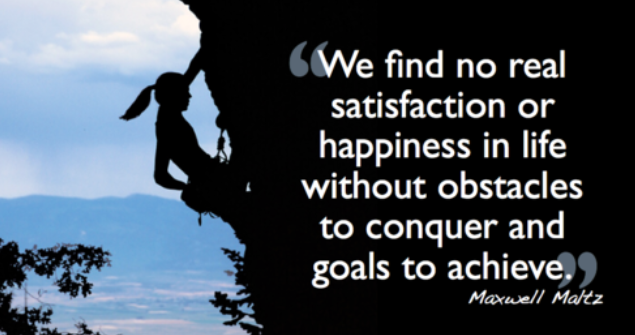Want a better life?
More Happiness? More Well being? How do you get yourself motivated today to improve your life? How come no one ever taught you this before?
Let me share a secret with you. A secret that the most accomplished people already know. A secret to living the good life that no one has taught you before.

What is that secret? — Motivation always starts by deciding what interests you. We call these interests your “Values.” Set a goal to accomplish something new in that area and you will attain more of whatever you value. It is a magic formula that really works!
Values + Goals + Action = A Better Life!
Most people want more out of life than what they are currently getting. But they may be afraid to dream of anything important out of fear that they won’t get it and then will feel disappointed. If you know your values you need never fear again. Values and Goals naturally lead to action. Repeated action leads to results. You naturally move toward what you value. Pura Vida!
Let’s put it in action right now. Try the following exercise —
Exercise Step One:
Take out a sheet of paper. Write a list of everything you value. It may take several pages but it is good to get it out on paper where you can look at it. Consider what you value in the different areas of your life:
- Personal Emotional and Mental Self,
- Family and Spouse or primary relationship,
- Friendships and Community relationships,
- Career and Financial,
- Spiritual life
- Possessions and living quarters,
- Physical condition and health, and
You can add any other area that is important to you.
Our values are what motivate us, they are what we think is important – what we value. Sometimes they are the things that excite us and sometimes they scare us. But they are never boring. At the Weekly Wisdom Game we cherish learning about a person’s values.
Exercise Step Two:
Write a Goal or two that moves toward what you value. Just a little one. Small steps lead to greater things. It is better to make goals so small that you can do them right away and in one event.
Tiny goals organize our actions so that we move toward a better life. Consider whether you would benefit from having goals to improve in the areas of your values? When we define our values and work toward improving them, we are working toward Virtues. Virtues are the values that make us better people. We want to be Virtuous people, right?
When you know your own values and virtues you can more easily stay focused, and you will find many ways to accomplish goals that satisfy your values. If an action doesn’t serve your values, make you a better person, why would you do it?
When you know another person’s values you can be of better service to them. You can help them in ways that support their values. You can show them how a proposal you are making helps them satisfy their own values. You can motivate them to take actions in service of their values. You can convince them to do things that are important to do. At the Wisdom Games this last weekend we learned how to discover another person’s highest values. Values are the key to motivation, influence, getting going, and building trust.
Be aware that there are two types of Values. Those you move away from and avoid and those you move toward.
The first are the important negatives in life that make us afraid or worried. We protect ourselves by avoiding them. We need a few of these in our lives. As an example we all have a value for Safety. We avoid danger. It is important to know our negative values so that we can quickly make decisions to avoid them when we have to make a choice.
The second type of values are the ones that we move toward. We want more positive values in our lives because they are our desires and help us fulfill our physical, emotional, and social needs. An example of a “toward” value is Love. Most of us want to move toward more love in our lives. By listing our positive values we can set goals to take action and move toward fulfilling those values.
Take Action Now — Tiny Action!
Look at your list of values and pick one or two that are most important to you. Choose your highest values and decide to do something to make your life better starting today, starting right now! Set a small goal that relates to your highest value. Try to find the smallest, next step that you can take right now. Or set a specific appointment with yourself to take this first step toward your goal and your value as soon as is physically possible.
This is the principle of taking lots of Tiny Actions. These are easy to do because they are so small. But you will feel good about accomplishing them, getting them out of the way, and getting the ball rolling. Then you can do another action because each one is so easy. Do a number of these and they add up quickly. Your life will thank you for it.
You Deserve to Live a Happy Life
I know, easy and great, right? Why didn’t anyone ever already teach you this stuff?
Happiness doesn’t come so much from momentary pleasure, or from doing activities, or attaining possessions. Happiness comes more from working toward achievable goals that serve your own personal values.
If you know your values and do a little work on them every day, you will be feel satisfaction along the way. And that will make your life happy. Exciting to begin with!
As you achieve the goals you set, you will see that they move you toward the things you most Value, and that will make you even more happy. Even more exciting!
Finally, (and this is the best part!) the most important happiness comes when you look back on your life and realize that you have lived according to your values and achieved many goals that made a difference.
Learn A Lot More
If you would like to Play the Game of Life at a higher level every single day, please consider coming to join us at The Weekly Wisdom Game.
A community of mutually supportive, emotionally intelligent players meets every Saturday in San Pedro area of San Jose, Costa Rica to support one another, do community service, and learn skills and games that grow our ability to live the good life of well being.
Please come join us! We need people like you with good Values!
To Register and save your space at The Weekly Wisdom Game: http://wisdomgamecr.com
For more information LIKE our Facebook Page: https://www.facebook.com/WisdomGameCR








